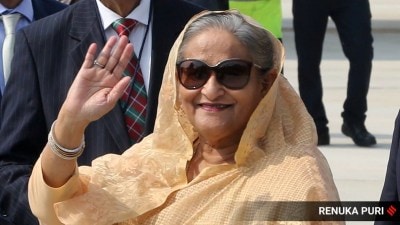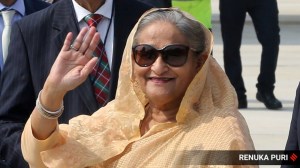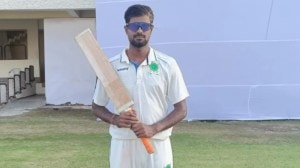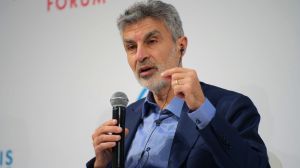More than a photo-op
It is clear that the cordiality and civility between the foreign ministers of Pakistan and India extended beyond a photo op at which both sh...

It is clear that the cordiality and civility between the foreign ministers of Pakistan and India extended beyond a photo op at which both shook hands in an apparently friendly manner. What is to be welcomed is the substance of what has been agreed upon at the SAARC Council of Ministers’ meeting in Kathmandu and the indication of the direction in which to proceed in future. Given the central issue between Pakistan and India being cross-border terrorism, or its alternate formulation from across the border, it is remarkable that the ministers agreed to the Indian proposal to organise a SAARC ministerial level meeting on terrorism. Similarly, the agreement to a Pakistani proposal to strengthen the 1987 SAARC Convention on Terrorism is a parallel achievement. These could provide an avenue for future dialogue at the multilateral level to control and roll back terrorism in the region.
The challenge for Pakistan and India, not to talk of the other members of SAARC, would be to translate these agreements into policy steps otherwise the prevailing cynicism about the value of SAARC as a vehicle for regional co-operation would perhaps deepen. This is why it becomes important to ensure that implementation of the South Asian Preferential Trade Agreement is expedited. Similarly, the countries of the region need to move toward concluding the South Asian Free Trade Agreement at an early date. By agreeing to a block of dates in January next for a SAARC summit to be held in Pakistan, India has conveyed an implicit assumption that dialogue at the level of the heads of governments of Pakistan and India may be possible. The prospects of any such dialogue would no doubt be affected by the nature and trend of developments on the ground between now and then.
The controlling factor in this process would be the winding down of terrorist violence in J&K and successful elections in the state free of any fear of violence. Successful elections also cannot be seen as an end in itself, but only as a means toward governance by the elected representatives of the people. At the same time, developments within Pakistan, especially its progress toward the limited democracy being permitted by the army, would be the other major factor. It is not yet clear what form these developments will take, but if the religious hardliners in Pakistan gain in influence because of the tussle for power between the army and political leadership, the prospects of a more peaceful future could recede rapidly. New Delhi, therefore, has to remain fully prepared against any worsening of the situation while preparing for a better future. The coming months are likely to be extremely crucial for the future of the 1.3 billion people of the region. Islamabad has an opportunity of the century to shape that future.



- 01
- 02
- 03
- 04
- 05




























